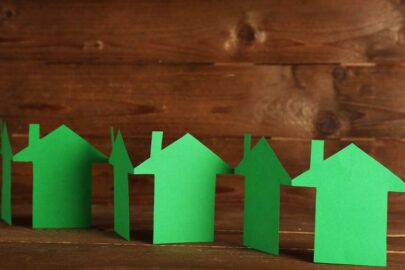Halifax has reported that house price growth in March totalled 1.4%, the biggest increase for six months.
Prices rose for the ninth month in a row, and two years on from the first lockdown, house prices have now risen by £43,577.
Russell Galley, managing director of Halifax, said: “Average UK house prices rose again in March for The increase of 1.4%, or £3,860 in cash terms, was the biggest jump since last September. With 2021’s strong momentum continuing into the beginning of this year, the annual rate of house price inflation (+11.0%) continues to track around its highest level since mid-2007. The new record price of £282,753 is up some £28,113 on a year ago, not far off average UK earnings over the same period (£28,860).
“The story behind such strong house price inflation remains unchanged: limited supply and strong demand, despite the prospect of increasing pressure on households’ finances. Although there is some recent evidence of more homes coming onto the market, the fundamental issue remains that too many buyers are chasing too few properties. The effect on house prices makes it increasingly difficult for first-time buyers looking to make their first step onto the ladder, but also challenges homemovers who face ever bigger leaps to move up the rungs to a larger property.
“However, in the long-term we know the performance of the housing market remains inextricably linked to the health of the wider economy. There is no doubt that households face a significant squeeze on real earnings, and the difficulty for policy-makers in needing to support the economy yet contain inflation is now even more acute because of the impact of the war in Ukraine.
“Buyers are therefore dealing with the prospect of higher interest rates and a higher cost of living. With affordability metrics already extremely stretched, these factors should lead to a slowdown in house price inflation over the next year.”
Charlotte Nixon, mortgage spokesperson at Quilter, added:”The current circumstances are expected to put the brakes on runaway house prices. The situation in Ukraine remains unstable and the cost of living crisis is being felt increasingly by the day, particularly as the energy price cap and national insurance increase have both now come into play. Given the increased financial instability, first time buyers and prospective home movers will likely think twice before embarking on the expensive process of buying a new home.
“What’s more, the Bank of England is expected to increase interest rates further, which will further reduce people’s spending power. Prior to the outbreak of war in Ukraine, inflation was expected to peak at 7.25%, this is now likely to be considerably higher and the only way to combat it is with increased rates. Should this happen, the already dwindling number of cheap mortgage rates will quickly disappear and monthly costs will see a swift increase. Should less people look to move home as a result, the cost of house prices may finally start to see a slowdown.
“Over the next few months we will see how the housing market truly reacts to the current circumstances, but it is unlikely house prices will continue rising at the same pace seen in recent times. If we do see a slowdown, there will likely be a gradual fall as opposed to a sudden drop as there remains simply too much demand and too little stock which will keep house prices raised for some time yet.”
